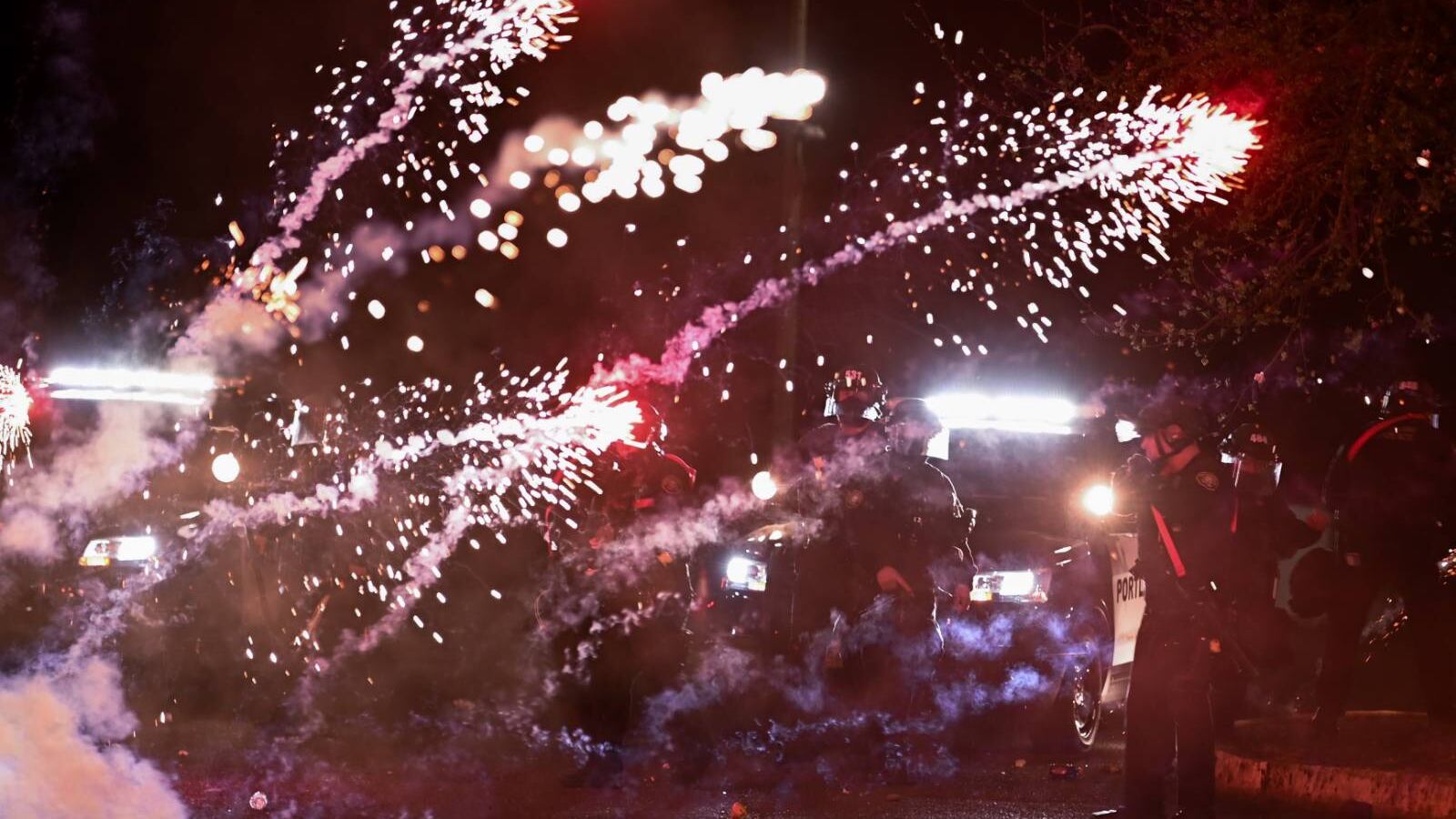A fresh wound in America reignited clashes between Portland protesters and police Monday night, as this city's first riot in three months was declared in the wake of a police killing of a Black man named Daunte Wright in Brooklyn Center, Minn.
Three vigils to mourn Wright and demand police defunding were held in Portland on April 12. The third ended with police forcefully clearing demonstrators from East Burnside Street after several set fires and damaged a city office building.
The scale and intensity of the clash did not match the May 28 protest and riot that sparked more than 100 days of marches in Portland following the killing of George Floyd. But the emotions were similar, and so was the cause of sorrow and fury: police in Minnesota killing a Black man, this time during an April 11 traffic stop in a Minneapolis suburb. (In fact, the killing of Wright occurred amid the murder trial of Derek Chauvin, the Minneapolis officer charged with killing Floyd.)

About 200 protesters dressed in black bloc assembled in the grass by the lake in Laurelhurst Park for a vigil late Monday afternoon. At sunset, protesters marched toward the Penumbra Kelly Building. The building houses both county and city offices, and has been a frequent target of demonstrators for nearly a year.
By now, however, both police and protesters in Portland are familiar with each other's tactics. And there were few surprises Monday night.
The crowd chanting Wright's name arrived at the Penumbra Kelly Building at around 8:30 pm, finding Portland police officers already deployed in both driveways. Protesters formed a line with umbrellas and homemade shields.
Almost immediately, a short volley of fireworks flew overhead and exploded on the driveway and parking lot of the building. The shield line advanced onto the building driveway, prompting officers to briefly push back. That established the battle lines: protesters on the sidewalk and officers behind their vehicles.
Two flaming dumpsters were toppled onto each of the two driveways. More aggressive members of the crowd ran into the building driveway and targeted the windows, glass doors, and lights with rocks and hammers before melting back into the crowd. Bottles and rocks sporadically landed on the driveway.
"Let's take the parking lot!" someone in the crowd yelled. "They don't have enough people!"
One protester made away with light fixtures from the building's exterior, and at least one object—it looked like a trophy—taken from within the building. That's a degree of brazenness not seen since the height of clashes between protesters and federal officers last summer.
Portland police declared an unlawful assembly at around 10:15 pm. Police reinforcements arrived via riot van from the east, while the garrison occupying the building pushed the crowd west, all the while deploying flash bangs and less lethal impact munitions at the retreating crowd. Officers bull-rushed the crowd on multiple occasions, pushing protesters and members of the press to the ground.

Retreating protesters placed trash cans and other obstacles on the ground in an attempt to slow the police advance. Officers stopped their push at the intersection of Burnside and Southeast César E. Chávez Boulevard, as the crowd had already been largely splintered.
The remaining protesters disparaged officers until they retreated in a final volley of flash bangs and impact munitions. No arrests had been announced as of 1 am.
Earlier in the evening, small crowds gathered for vigils at the Multnomah County Justice Center and in Tom McCall Waterfront Park. Among the speakers: Demetria Hester, a Black woman who was assaulted by Jeremy Christian on a MAX train in 2017 and has since emerged as a resolute organizer of Black Lives Matter protests.
"I don't have anything to prove, but you do as white people," Oregon Public Broadcasting reported Hester told the crowd. "As people standing up for Black lives, you have an obligation that you failed because he's dead. Where's all of the action?"


